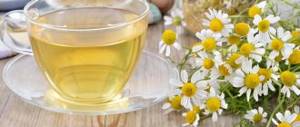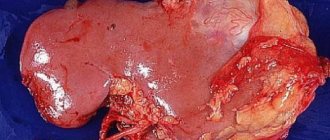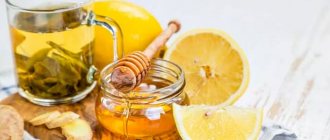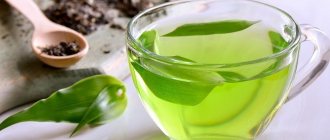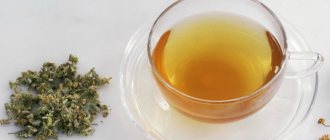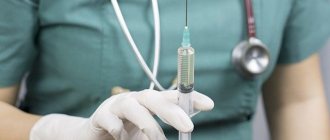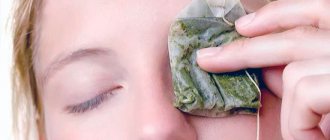In eastern countries, ginger is used as a medicine no less often than as a seasoning in cooking. To be completely precise, historically there has been a tradition not to separate food and medicine: everything that a person takes orally affects him in one way or another. In India, which is the geographical homeland of this spice, even in ancient times it was claimed that food heals - you just need to know what and how to cook.
Indian doctors explained in detail how to treat with ginger, describing recipes for each disease. All of these tips have stood the test of time and are still relevant today.
Is it possible to use ginger root for kidney and urinary tract diseases?
Ginger tinctures have a beneficial effect on the body, since this plant contains 3% essential oils, a wide range of vitamins, as well as the following components:
- calcium (a useful and absolutely irreplaceable element);
- fluorine;
- potassium;
- magnesium;
- zinc;
- flavonoids;
- organic acids (carboxylic, sulfonic, etc.);
- tannins.
Infusions, teas and decoctions can be used in the treatment of chronic diseases of the urinary system. In any case, if you have a particular disease of the genitourinary system or kidneys, treatment should begin after a thorough examination of the patient. If there is only sand in the kidneys, the treatment will be effective. If stones of impressive size have formed, then self-medication without consulting a specialist may be unsafe.
Important! For formations in the kidneys, ginger infusions can be taken if the stones do not exceed 1 cm in diameter.
The healing properties of ginger root for the treatment of pyelonephritis
The effect ginger drinks have on the kidneys depends on the characteristics of the body.
- But in any case, the healing composition has the following beneficial properties:
- anti-inflammatory;
- antibacterial, antiviral, antimicrobial;
- stimulating;
- antispasmodic;
- diuretic;
- antioxidant.
This property, such as a diuretic, gradually clears the renal canals of sand. Ginger also stimulates the movement of stones. If the kidney is inflamed, the plant will relieve the symptoms of inflammation, dilate blood vessels due to its antispasmodic properties and relieve pain.
The folk “healer” relaxes the smooth muscles of the internal organs (including the kidneys) and promotes their cleansing. Ginger has another beneficial quality. Since the cause of stone formation is a metabolic disorder, it can have a positive effect on this process: improves digestion, helps cleanse the blood, etc.
Did you know? There is a theory that ginger was brought to Europe by Marco Polo.
Europeans liked its taste so much that they began to use it as a spice, and later as a medicine. For example, this root was considered the main means of preventing the plague.
Contraindications for the use of ginger
Herbalists and doctors recommend regulating the use of the beneficial spice. Although it has many health benefits, high doses of ginger can be harmful to the body. When taken in large quantities, ginger root can cause heartburn, nausea, upset stomach, bloating and nausea.
- People should use ginger with great caution:
- in the presence of serious diseases of the gastrointestinal tract;
- with existing frequent bleeding;
- during pregnancy;
- when taking blood thinning medications.
The spice can negatively interact with medications intended to treat the heart, as well as with antihistamines. Only with the permission of a doctor can ginger be used when undergoing treatment against cancer.
Did you know? In ancient Greece, the ginger plant was used to improve digestion after overeating. In Mongolia and Taiwan, the root is used to prolong youth, and in China - to improve memory.
People all over the world love to drink tea with the root of this beneficial plant, because it has many beneficial properties, improves mood, normalizes cerebral circulation, promotes weight loss and supports the immune system. The main thing is not to overdo it and do everything in moderation and according to indications.
Traditional medicine recipes with ginger for kidney pain
There are many ways to use ginger infusions to treat kidneys. Most of them really have an amazing effect. Decoctions with the addition of other components are especially effective.
Ginger tea with lemon and honey
This drink will not only relieve pain in the lower abdomen, but will also help remove toxins, improve digestion, activate urine excretion, and also refresh the complexion.
Required ingredients:
- grated ginger - 1 tbsp. spoon;
- water - 200 ml;
- honey and lemon - to taste.
The cooking process is simple and consists of the following steps:
- Bring the water to a boil, add ginger to it.
- Remove the drink from the heat and leave for a few minutes.
- Strain, add honey and lemon, take orally.
The drink does not begin to act immediately; it requires constant use. You can drink 2–3 cups per day. This decoction can be taken to prevent diseases of the kidneys and genitourinary system. In the absence of strict contraindications (disorders of the gastrointestinal tract, liver disease), there will be no harm from such a drink.
We recommend finding out how the combination of ginger, lemon and honey is beneficial.
Ginger tea with added green tea
It is better to treat any disease by combining traditional and non-traditional methods. The main thing in solving a problem is systematicity and regularity. There is a simple recipe for an effective remedy - green tea brewed with a few cloves of ginger. These products are characterized by an excellent diuretic effect, therefore they are actively used in the treatment of kidney diseases.
Kidney tea is easy to prepare: place a teaspoon of tea leaves and ½ teaspoon of grated ginger in a cup and pour boiling water over it. Let the tea brew for 3-4 minutes. Drink warm. The last appointment must take place no later than six o'clock in the evening. It is allowed to add lemon and honey to improve the taste.
Did you know? Chewing fresh ginger can help eliminate garlic odor and eliminate harmful bacteria in your mouth.
Ginger and turmeric tea for the treatment of kidney stones
Turmeric is the most recommended spice for blood cleansing. It also enhances the urinary effect of ginger. Any product based on this spice has anti-inflammatory and anesthetic properties, since the active component curcumin is rich in antioxidants. Due to this property, turmeric is widely used to treat many diseases.
Turmeric has been used for kidney cleansing for centuries. This spice calms inflammatory processes (pyelonephritis, etc.) and cleanses the organs of toxins. Turmeric also helps break down proteins and salt deposits. Turmeric may also have a protective effect by affecting the urinary tract. First of all, it prevents them from clogging, and then creates a protective barrier against viruses and bacteria.
Natural ginger turmeric tea is an ancient drink recommended for people with kidney stones or as an adjunct to the treatment of kidney disease. Turmeric and ginger pacify inflammatory processes and help destroy deposits. It is also worth mentioning that the drink is nutritious and, in addition to helping the kidneys, is useful for blood circulation, blood vessels, and joints. It also has a good effect on other important organs.
Important! Systematic consumption of the drink significantly reduces the risk of developing hypertension and has a positive effect on mental abilities. If your liver is sick, it is not recommended to drink the drink.
If you have been diagnosed with kidney failure or another kidney disease, you need to take the following ingredients:
- ginger root - 2.5 cm;
- turmeric powder - 1 teaspoon;
- water - ½ liter;
- natural honey (optional) - 1 tablespoon.
The cooking process consists of the following stages:
- Pour water into a metal container and bring to a boil. Pour boiling water over ginger and turmeric.
- Leave the tea for 10–15 minutes. The drink should become concentrated.
- Strain the broth, add honey, and you can begin treatment.
Drink tea on an empty stomach every morning.
Liver
The plant components of ginger have a positive effect on the kidneys. However, in inflammatory processes, it is contraindicated.
How does it affect?
Minerals and essential oils present in the chemical composition of ginger root can trigger the process of regeneration of liver cells.
Along with food or drink, infections enter these organs, causing various diseases. Thanks to its bactericidal properties, ginger protects the liver from pathogens.
Its ability to improve blood supply is used to strengthen the walls of liver vessels. The organ is better saturated with oxygen, its functioning improves. Ginger-based infusions are used to treat diseases such as alcoholic hepatitis. The plant has an antioxidant effect and disinfects.
However, spice is harmful in the presence of inflammatory processes. Because it has a strong irritating effect. The patient’s condition is aggravated if he takes alcohol or is prescribed a diet filled with fats.
Can I use it?
If you use the spice thoughtlessly, you can cause undeniable harm to the body (how can ginger be dangerous for the body and in what cases?). Ginger is completely contraindicated for inflammatory processes of the liver . Its use can lead to exacerbation of inflammatory diseases.
For cirrhosis
For cirrhosis, decoctions and infusions based on ginger are recommended for use. Plant enzymes are able to protect liver cells from harmful effects. The load on the organ and the development of tissue necrosis are reduced. This increases the chance of a cure for cirrhosis.
Acceptance with benefit
- Cleansing the liver with a decoction.
- 2 tablespoons of lemon zest, 2 tablespoons of clove flowers, 2 tablespoons of dry ginger, pour 250 ml of boiling water and leave for 2.5 hours.
- Drink the decoction in two doses - after breakfast and after lunch.
- The effectiveness of the procedure can be increased if you wrap yourself in a warm blanket after drinking tea. This helps open the liver channels.
- Cleansing course.
- Peeled ginger root 3 cm thick from the skin, grated.
- Pour 250 ml of boiling water and leave for 30 minutes.
- Then add a tablespoon of honey and 2 drops of lemon juice. Cool.
- The course begins with 10 drops of infusion per day.
- Each subsequent day the dosage is increased by 2 grams. Until reaching 40 grams per day. Leave this amount for 14 days. Then - reduce by 2 g.
Rules of use
Ginger contains a large number of active elements, so there are some rules when using it:
- You may feel hot at first. This is completely normal - this is how the body reacts to the activation of some natural processes. To prevent this condition or if the kidneys begin to hurt, drink tea in small portions.
- If the tea has an unpleasant aftertaste, it means it has not been properly strained. Also, an unpleasant taste occurs if the root was stale (moldy, wrinkled).
- If a person is characterized by excess excitability, then it is better to drink the drink less often. And you shouldn’t take ginger decoction at night.
- If you notice that after drinking tea you feel hungry, then it is advisable to drink it after eating. This technique will not cause harm, but it will prevent overeating.
- You can drink no more than two liters of drink per day. Doctors do not advise taking decoctions in large quantities.
The key to successful treatment will be not only the correct consumption of the drink, but also its proper preparation, as well as the choice of quality ingredients.
We propose to study separately the effect of ginger on the health of women and men.
Kidney teas
Kidney tea is a diuretic herbal preparation that stimulates kidney function. For pyelonephritis, herbal remedies with anti-inflammatory, antispasmodic, uroseptic and immunostimulating effects are indicated. Therefore, they prefer teas with the following medicinal herbs:
- blue cornflower;
- horsetail;
- Birch buds;
- bearberry;
- dog-rose fruit;
- marshmallow root;
- goose cinquefoil.
It is necessary to treat pyelonephritis with folk remedies under the supervision of a urologist. The choice of tea depends on the presence of dysuric disorders and kidney function. During periods of exacerbation, herbal collections are recommended:
- elderberry with rose hips, fennel fruits, bearberry, wild strawberries;
- yarrow with flax seeds, horsetail, nettle;
- lingonberries with goldenrod, black elderberry, dill, calendula flowers.
Traditional recipes for herbal teas:
- Urological collection No. 1. Lingonberry leaves, St. John's wort, anise fruits and tansy flowers are mixed in equal proportions. 20 g of the mixture is steamed with 1 liter of boiling water. Leave in a thermos for 8-10 hours, then filter. Drink ½ glass up to four times a day for 1 week in a row.
- Urological collection No. 2. Mix 2 tbsp. l. bearberry leaves, crushed licorice roots, sage. Add 2 tsp. yarrow, oat straw. 10 g of collection is poured into ¼ liter of boiling water. Infuse in a container with the lid closed for 3 hours. Drink 150 ml of filtered tea 3 times a day half an hour before meals.
Herbal teas for the treatment of pyelonephritis can be purchased at the pharmacy. To speed up recovery, use Nephrotonic, Fitonephrol, Canephron.
Pyelonephritis is an inflammation of the kidneys caused by pathogens. Without proper therapy, it is complicated by cystitis, anuria, and renal failure. To speed up recovery and prevent unwanted consequences, they resort to traditional herbal treatment. They stimulate urination, destroy microbial flora, and accelerate the healing of renal parenchyma and mucosa.

